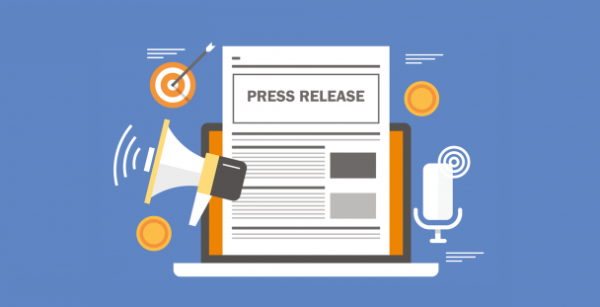Concern that some self-employed risk missing out on Covid-19 cash
The Low Incomes Tax Reform Group (LITRG) worries that some people who are eligible to apply for the Self-Employment Income Support Scheme (SEISS) grant have not received correspondence from HMRC.

LITRG is warning people that if HMRC do not have their up-to-date contact details, they might not hear from the tax authority. This is a concern because HMRC are starting to contact people to invite them to check their eligibility for the SEISS grant before the claims process1 opens later this week.
To qualify for the scheme2 you have to meet several conditions which include a requirement to trade on a self-employed basis (either as a self-employed individual or a business partner in a trading partnership), both currently and in the future (or would be but for Covid-19) and that your trade has been affected3 adversely because of the Covid-19 outbreak.
HMRC have used information from 2016/17, 2017/18 and 2018/19 tax returns to identify potential SEISS claimants and have contacted them through either email, SMS messages or letter.
Victoria Todd, Head of LITRG, said:
“There may be self-employed people who have not received any information from HMRC about the SEISS grant who are eligible and should be making a claim towards the end of this week. This includes people who are self-isolating at a different address to where they usually reside or perhaps have changed address or mobile number but have not updated their contact details with HMRC.
“We are concerned that self-employed people whose businesses have been affected by the coronavirus may miss out on claiming this grant because they were not aware that it was available. It would be very unfortunate if business owners who have seen a fall in trade because of the lockdown or Covid-19-related health reasons do not get the financial help they are entitled to.
“HMRC have produced an online checker4 on GOV.UK which identifies whether you may be eligible for the grant.5 But the online checker only checks some of the eligibility conditions and may give an incorrect result. If you are self-employed and think you may be eligible for a SEISS grant, we recommend that you read the Government’s guidance which sets out the full conditions and that you use the online checker to see if and when you can apply for the scheme.
“We are aware that some people who think they are eligible are using the checker and receiving a ‘not eligible’ response. We suggest that you wait a couple of days and then try again. If it still shows you are not eligible then you can ask HMRC to review your eligibility.”
To use the SEISS online checker you will need your National Insurance number and Unique Tax Reference (UTR) both of which are on your Self Assessment tax return. LITRG’s article ‘How to claim a grant under the self-employment income support scheme’6 explains in more detail how you can use the online checker and how you obtain the SEISS grant.
Notes for editors:
1. It will be possible to make an online claim for the SEISS grant from Wednesday 13 May. HMRC are allocating claimants a date and time from when they can make their claim to stagger the process so the systems are not overwhelmed. Claimants are given details of their claim slot once they have completed the online eligibility checker.
2. The SEISS guidance on GOV.UK is at https://www.gov.uk/guidance/claim-a-grant-through-the-coronavirus-covid-19-self-employment-income-support-scheme and LITRG guidance on the SEISS is at https://www.litrg.org.uk/tax-guides/coronavirus-guidance/coronavirus-self-employment-income-support-scheme
3. https://www.litrg.org.uk/tax-guides/coronavirus-guidance/coronavirus-self-employment-income-support-scheme#toc-who-is-eligible-for-seiss-
4. https://www.tax.service.gov.uk/self-employment-support/enter-unique-taxpayer-reference
5. To be able to claim the SEISS grant you have to pass certain eligibility criteria this is explained on the LITRG website: https://www.litrg.org.uk/tax-guides/coronavirus-guidance/coronavirus-self-employment-income-support-scheme#toc-who-is-eligible-for-seiss-
6. https://www.litrg.org.uk/latest-news/news/200507-how-claim-grant-under-self-employment-income-support-scheme-seiss
7. The Low Incomes Tax Reform Group
The LITRG is an initiative of the Chartered Institute of Taxation (CIOT) to give a voice to the unrepresented. Since 1998 LITRG has been working to improve the policy and processes of the tax, tax credits and associated welfare systems for the benefit of those on low incomes.
The CIOT is the leading professional body in the United Kingdom concerned solely with taxation. The CIOT is an educational charity, promoting education and study of the administration and practice of taxation. One of our key aims is to work for a better, more efficient, tax system for all affected by it – taxpayers, their advisers and the authorities. The CIOT’s work covers all aspects of taxation, including direct and indirect taxes and duties. The CIOT’s 19,000 members have the practising title of ‘Chartered Tax Adviser’ and the designatory letters ‘CTA’, to represent the leading tax qualification.
The CIOT is the leading professional body in the United Kingdom concerned solely with taxation. The CIOT is an educational charity, promoting education and study of the administration and practice of taxation. One of our key aims is to work for a better, more efficient, tax system for all affected by it – taxpayers, their advisers and the authorities. The CIOT’s work covers all aspects of taxation, including direct and indirect taxes and duties. The CIOT’s 19,000 members have the practising title of ‘Chartered Tax Adviser’ and the designatory letters ‘CTA’, to represent the leading tax qualification.
Contact CIOT External Relations on 0207 340 2702 / Out of hours contact: George Crozier, 07740 477 374
